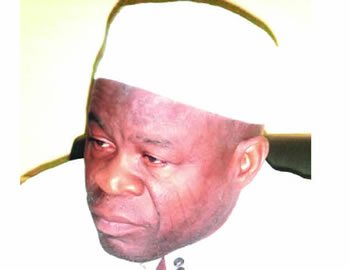Professor Rashid Aderinoye was the immediate past Executive Secretary, National Commission for Nomadic Education. In this interview with KEHINDE ADIO, he shares his experience on the job, among other sundry issues. Excerpts:
What did you meet on the ground when you joined the commission?
I met a situation that could simply be described as stagnation and abandonment. Right from inception, nomadic education programme had been faced with the challenges of infrastructure such as inadequate classrooms, shortage of furniture; the learning environment was not conducive enough to guarantee quality education; teaching, in most cases, was conducted under the tree shades and in public places. Worse still, staff productivity was at zero level for marginalisation in the areas of training, welfare and promotion,
What was your priority projects agenda?
Initially, I was not well received by stakeholders in the commission and even the staff. They were very skeptical about my personality as a non-Fulani or Hausa. However, I was able to raise their hope when I unfolded my developmental project agenda for the transformation of the commission in all its ramifications.
My first assignment was the collection of data that reflected the number of children to work on; how many of them were in school and how many were out of school. The data also showed the number of teachers on the ground, the state of infrastructure in the commission, the staff strength and the instructional materials availability.
What were your other challenges?
Funding was a big problem, and not until the government considers the commission as a factor in the Education For All development programme process, especially among the nomads, there will continue to be imbalanced development. One can imagine what will be the consequence of the situation where some children in some parts of the country have access to quality education while those in another part of the country are denied the same opportunity. If Nigeria wants to address the problem of insurgency in the North and in some Niger Delta areas, it must take good care of the vulnerable children in terms of education.
Another challenge we experienced in the course of our services was that people were still skeptical about western education. We found it very difficult to convince them to send their children to school. I made bold to say that if these people are properly educated, the development will go a long way to ensure peace and economic stability in this country.
Can you list some of your achievements?
To the glory of God, my transformation and change agenda brought about the provision of standard modern classroom blocks with all amenities across the country. Nomadic schools became more child-friendly, thereby improving student enrolment to an appreciable level. Teachers were trained to improve their teaching service delivery. During my tenure, I was able to resuscitate and develop the collapsed Information Communication Technology of the centre. Now, every member if staff is computer-literate.
Moreover, I made efforts to forge partnership collaborations with some national and international educational agencies in the country, such as UNICEF, Korea Agency, and UNESCO, to ensure the provision of instructional materials and textbooks to all the nomadic schools in the country, construction of more classroom blocks, professional development workshop for nomadic teachers across the country.
Is there any project that you wished you had completed before your tenure ended?
One of the projects is the introduction of uniform for nomadic schools. I made an attempt but I could not complete it. I hope that my successor will make it possible.
One other project I would have loved to have see its fruition is the African Development Bank project intervention. It will interest the public to know the intervention of African Development Bank in the area of technical and vocational education. Out of the 10 centres being supported by the bank, two of them are directly under the commission. The centres are located in Laduga in Kachia Gracing Reserve in Kaduna, and in Kilometre 26 Abuja-Kaduna expressway. The centres are focusing on garment making, bee farming and honey processing, dairy and shea butter processing.
What do you think Nigerian government can do to make the commission more efficient to achieve its set objectives?
Adequate funding and prompt release of fund is essential. It saddens one’s heart that not many people understand and appreciate the nomadic commission as a body saddled with the responsibility of ensuring that the nomads have equal access to qualitative education. If we train them, they have a lot to contribute to the nation’s Gross Domestic Product (GDP). They need literacy, skilled development and socialization education for them to be relevant in the society.
Secondly, the Federal Government alone cannot shoulder the funding responsibility of the commission; the state and local governments have roles to play in the nomadic education programmes in their domains. Moreover, there is need to relocate the headquarters of the commission to Abuja. The development will go a long way to enhance the productivity of the principal officers of the commission.
Now that you have left the commission, what is your next plan?
I am now back to my teaching profession at the Department of Adult Education, University of Ibadan.





